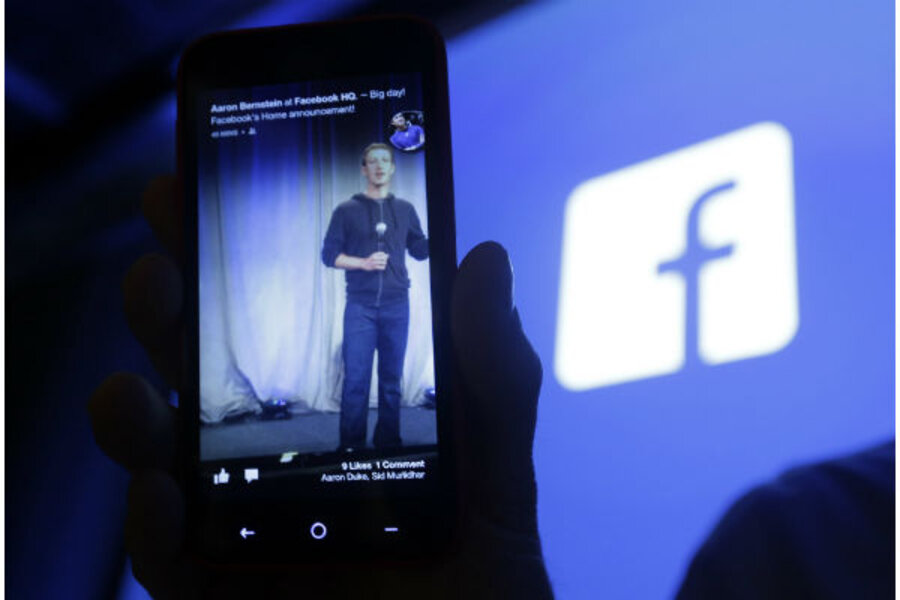Facebook study: Why parents say 'no' to kid pics online
Loading...
Facebook turns 10 tomorrow and parents tell the Pew Research Center they are not very happy about how the dominant social networking platform plays with their kids when it comes to image and video sharing features.
According to the Pew study, parents dislike when images and videos of their children are shared on Facebook by others without their permission.
“Parents are especially protective of images of their children, as 57% of Facebook users with children under the age of 18 say that people posting pictures of their children without asking permission first is something they strongly dislike about using Facebook,” according to the study.
Facebook is the dominant social networking platform, used by 57% of all adults and 73% of all those ages 12-17.
As a blogger and someone who runs a children’s chess group I am used to asking permission of parents before using a child’s image.
The City of Norfolk, Va., which hosts our group, issues permission forms and had me do the same to get written permission from parents because many times just having a parent say “yes” isn’t enough to cover you legally if they change their mind after it’s posted.
Yet despite all that ingrained procedure it’s still easy to slip up when posting photos of my own kids via smartphone, especially if they are in a crowd at events.
Years ago, when I posted a snapshot of my son at a school honor roll ceremony, other parents saw their child in the background and called me to go berserk.
It didn’t help that those just happened to be the same pictures accidentally posted as “public” since that’s the default setting on my new Android phone Facebook App, instead of “friends” only.
I fixed that setting in a hurry.
To find out how some of my friends feel about photos of their kids being shared by others, I posted the question on my Facebook wall. Among the responses:
“If my kids are in a photo with their kids, I'm fine with it. I don't live in the Fox News universe where every stranger is a sexual predator,” replied dad B.C. Wilson.
Police Officer Ivetta Pertosyan replied, “I'm fine with it as long as I'm tagged on it and know they're up.”
One mom simply replied, “don't post pics of me or my kids without my permission.”
I have no problem with that. Last year when a man posted a shot of me that was not very flattering and then tagged me in it without my permission I was feeling very “unfriendly.”
My friend Meg Faller, mom of twin boys and a photographer posted, “Don't mind for myself, but if someone asked me to take something down, I immediately would. In our current atmosphere of instant posts to Fb, if you have a problem with people posting pictures of your kids, you should let people know at the event.”
Christina Schweiss posted, “In my daughter's American Heritage Girls troop, they tell people at the beginning of the year to please not post pictures of other people's kids to social media without that person's permission.”
It was my pal Dawn Peters who got straight to the heart of the matter, which is how our own kids – especially teens – feel about parents posting pictures of them without their knowledge or permission.
“I do it all the time. My daughter doesn't like it when I tagged myself in her videos,” Ms. Peters wrote. ”She says that she gets all these comments from ‘old people’. I can share just not tag.”
As the mom of four boys, I ran into this same issue with my teen son about three years ago.
He was about three streets past Livid Lane when he came storming down the stairs from his room shouting, “MOM! What the heck? Seriously? Like you just had to take my picture and post it on Facebook for the world to see?”
I stammered in the face of his fury, all the while thinking, “I wish I had my camera. He’s so cute when he makes that angry face.”
However, I took him seriously and from that point on adopted the habit of asking the boys how they feel about the shots I take.
After all, if we don’t show our kids courtesy then we can hardly expect them to return the favor. And we don’t want them posting revenge photos of us in a pore minimizing mask, babushka and 'Betty Boop' PJs.








